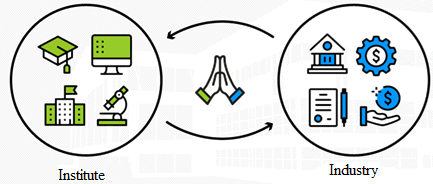
Dr. P. B. Deshpande
Assistant Professor
Dept. of Pharmaceutical Chemistry
AISSMS College of Pharmacy, Pune
Research plays a very important role in the development process of innovation. Core research activities are conducted in various research laboratories and institutes. The primary purpose of conducting research is to foster innovation in culture, leading to the generation of great ideas and advancements. Research involves brilliant minds that generate innovative ideas within a conducive environment equipped with well-established facilities for productive work.

Industry and institute collaboration plays a vital role in research. Interaction between industry and institutes is a highly favored activity that mutually benefits both industries and educational institutions. This collaboration provides an excellent platform for showcasing best practices, the latest technological advancements, and their implementation’s impact on the industry. Furthermore, it encourages industry experts to participate in curriculum design, significantly enhancing students’ preparedness for the workforce.
There are numerous ways in which industries support institutes in research activities. These include funding various projects and assisting in the scaling up of innovative products. In return, industries benefit from the expertise of highly qualified researchers, access to advanced research infrastructure, and the latest technology and knowledge.
Another effective way to initiate collaborations is by providing students with access to summer internships, with the ultimate goal of hiring the best-performing students after the interaction. Institutes are often motivated to engage with industries to enhance their prestige, which also contributes to greater social accountability, entrepreneurship, and overall economic relevance to society.
Therefore, the collaboration between universities and industry is widely recognized as a means to improve innovation in the economy by facilitating the flow and utilization of technology-related knowledge and experience. It also serves to increase research and development activities in both industries and institutions, ultimately contributing to the nation’s technological and socioeconomic growth.

